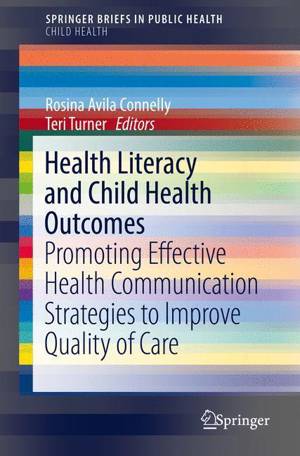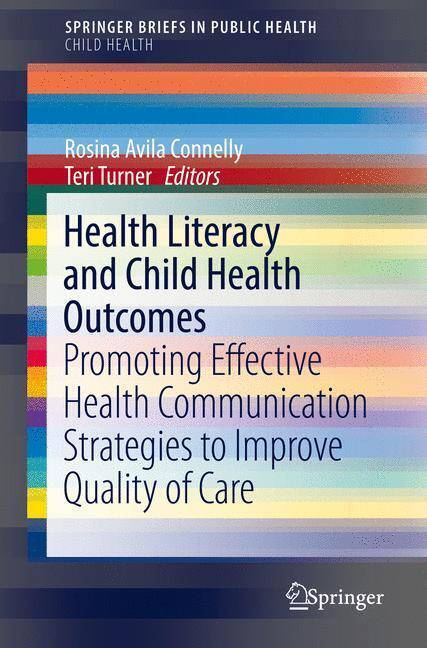
- Afhalen na 1 uur in een winkel met voorraad
- Gratis thuislevering in België vanaf € 30
- Ruim aanbod met 7 miljoen producten
- Afhalen na 1 uur in een winkel met voorraad
- Gratis thuislevering in België vanaf € 30
- Ruim aanbod met 7 miljoen producten
Health Literacy and Child Health Outcomes
Promoting Effective Health Communication Strategies to Improve Quality of Care
Omschrijving
This compact resource presents current data on health literacy as it affects child health outcomes, with a sharp focus on improving communication between healthcare providers and pediatric patients and their families. A frequently overlooked social determinant of health in children, health literacy is shown as a critical skill for patients and families and a key aspect of patient engagement. The authors' evidence-based survey pinpoints common problems in healthcare providers' verbal and written communication with pediatric patients, their parents, and/or caregivers. Readers will learn about practical health literacy strategies for addressing and preventing miscommunication at the individual and systems levels. These improvements are linked to immediate results (e.g., greater compliance, fewer medication errors) as well as improved long-term child health outcomes, including reduced health disparities and enhanced quality of life into adulthood.
This transformativeguide:
- Defines optimum health communication as necessary for working with all patients
- Identifies common barriers to clear health communication
- Traces the relationship between health literacy and child health outcomes, from the prenatal period and into young adulthood
- Offers guidelines for creating effective patient education materials and a safe, health literacy oriented patient-centered environment
- Integrates health literacy into health systems' quality improvement plans
Health Literacy and Child Health Outcomes informs students in MPH programs as well as public health scientists and scholars, and can also serve as an introductory text for students in public health ethics or a general applied ethics course. Public health professionals in diverse contexts such as local health departments and nonprofit organizations will appreciate its robust approach to ethical practice, professional development, and systems improvement. This will be a helpful guide for introducing health communication topics in medical education and allied health. Lastly, clinicians taking care of pediatric patients will find concise information and practical advice to apply in the clinical setting.
Specificaties
Betrokkenen
- Uitgeverij:
Inhoud
- Aantal bladzijden:
- 100
- Taal:
- Engels
- Reeks:
Eigenschappen
- Productcode (EAN):
- 9783319507989
- Verschijningsdatum:
- 7/04/2017
- Uitvoering:
- Paperback
- Formaat:
- Trade paperback (VS)
- Afmetingen:
- 156 mm x 234 mm
- Gewicht:
- 167 g

Alleen bij Standaard Boekhandel
Beoordelingen
We publiceren alleen reviews die voldoen aan de voorwaarden voor reviews. Bekijk onze voorwaarden voor reviews.










